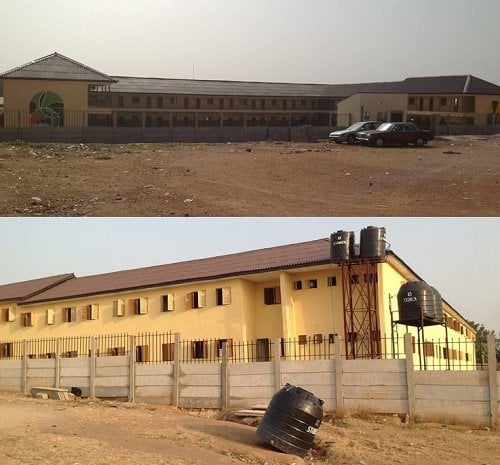
Nestled in the idyllic town of Princeton, New Jersey, Princeton University stands as an eminent institution revered for its unwavering commitment to academic excellence, pioneering research endeavors, and the cultivation of visionary leaders. Since its establishment in 1746, Princeton has left an indelible mark among the world’s premier universities, shaping the minds of generations and leading the charge in transformative discoveries.
From its historic Ivy League campus, steeped in tradition and architectural splendor, to its cutting-edge scholarship that pushes the boundaries of knowledge, Princeton University boasts a distinguished reputation that resonates across continents.
As a beacon of intellectual pursuit and societal impact, Princeton continues to inspire scholars, researchers, and leaders to pursue excellence, innovate boldly, and make meaningful contributions to the world.
Academic Excellence at Princeton University:

Princeton University’s commitment to academic excellence is reflected in its diverse array of programs, emphasis on a liberal arts education, top-notch graduate programs, rigorous educational experience, and encouragement of interdisciplinary exploration.
Through its dedication to fostering intellectual curiosity, critical thinking, and innovative research, Princeton prepares students to excel in their chosen fields and make meaningful contributions to society.
Read Here: what is columbia university known for
1. Diverse Array of Programs:
Princeton University’s commitment to academic excellence is exemplified by its diverse array of undergraduate and graduate programs spanning various disciplines.
From the arts and humanities to the sciences and engineering, Princeton offers a comprehensive educational experience that caters to a wide range of intellectual interests and pursuits.
2. Undergraduate Liberal Arts Education:
At the core of Princeton’s academic acclaim is its renowned undergraduate program, which is distinguished for its emphasis on a liberal arts education.
Through a carefully crafted curriculum, Princeton fosters critical thinking, interdisciplinary exploration, and intellectual curiosity among its undergraduate students. By encouraging students to engage with diverse perspectives and disciplines, Princeton prepares them to navigate complex issues and contribute meaningfully to society.
3. Top-notch Graduate Programs:
Princeton’s graduate programs attract top scholars and researchers from around the globe, offering unparalleled opportunities for advanced study and groundbreaking research.
Whether in the humanities, social sciences, natural sciences, or engineering, Princeton’s graduate programs provide students with the resources, mentorship, and support needed to pursue innovative research and make significant contributions to their fields.
4. Rigorous and Immersive Educational Experience:
Princeton University offers a rigorous and immersive educational experience that challenges students to think critically, engage deeply with their coursework, and push the boundaries of knowledge.
Through small class sizes, intimate seminars, and close mentorship from world-class faculty, Princeton ensures that students receive personalized attention and support as they pursue their academic and intellectual goals.
5. Interdisciplinary Exploration:
Princeton encourages interdisciplinary exploration and collaboration across departments and programs, fostering a dynamic and vibrant intellectual community.
By breaking down traditional academic boundaries, Princeton enables students and faculty to tackle complex issues from multiple perspectives and disciplines, leading to innovative solutions and transformative discoveries.
Research Prominence at Princeton University:
Princeton University’s research prominence is a testament to its commitment to excellence, innovation, and societal impact.
With state-of-the-art laboratories, interdisciplinary research centers, and collaborative initiatives, Princeton researchers push the boundaries of knowledge and address pressing global challenges, making indelible contributions that shape the course of academia and impact lives around the world.
Read Here: is boston university a good school
1. Leaders in Innovation:
Princeton University is renowned for its leadership in research innovation, consistently driving discoveries that push the boundaries of knowledge and address pressing societal challenges.
With a commitment to excellence and a culture of innovation, Princeton researchers are at the forefront of groundbreaking research endeavors that have a profound impact on academia and society.
2. State-of-the-Art Laboratories:
Princeton boasts state-of-the-art laboratories equipped with cutting-edge technology and resources, providing researchers with the tools they need to pursue innovative research projects.
These laboratories serve as incubators for creativity and exploration, enabling researchers to conduct experiments and investigations that lead to transformative discoveries.
3. Interdisciplinary Research Centers:
Interdisciplinary research centers play a pivotal role in fostering collaboration and innovation at Princeton University. These centers bring together experts from diverse disciplines to tackle complex challenges and explore new frontiers of knowledge.
By facilitating cross-disciplinary dialogue and collaboration, Princeton researchers are able to approach problems from multiple perspectives, leading to novel insights and solutions.
4. Collaborative Initiatives:
Princeton University fosters a culture of collaboration through its collaborative initiatives, which bring together researchers, scholars, and practitioners from academia, industry, and government.
By forging partnerships with external stakeholders, Princeton researchers are able to leverage their collective expertise and resources to address global challenges and drive positive change.
5. Pioneering Advancements Across Disciplines:
Princeton’s research enterprise spans a wide range of disciplines, from physics and mathematics to biology, computer science, and public policy.
From pioneering advancements in quantum computing and artificial intelligence to groundbreaking research in genomics and environmental sustainability, Princeton researchers are making indelible contributions that shape the course of academia and impact lives around the world.
6. Impactful Contributions to Society:
Princeton’s research enterprise is characterized by its commitment to making meaningful contributions to society. Through innovative research projects and collaborative initiatives, Princeton researchers address pressing societal challenges, drive technological innovation, and inform public policy decisions.
By translating their discoveries into real-world applications and solutions, Princeton researchers have a tangible impact on the lives of people around the globe.
Leadership Development at Princeton University:
Princeton University’s emphasis on leadership development reflects its commitment to preparing graduates to lead lives of purpose, service, and impact.
Through its distinctive approach to education, extracurricular activities, leadership programs, and opportunities for civic engagement, Princeton empowers its students to become visionary leaders who make meaningful contributions to society and shape the future of our world.
Read Here: what is duke university known for
1. Cultivating Visionary Leaders:
Princeton University is renowned for its commitment to cultivating visionary leaders who excel in their fields and contribute positively to society.
Through a distinctive approach to education, Princeton instills in its students the values of responsibility, integrity, and service to others, preparing them to tackle complex challenges and lead lives of purpose and impact.
2. “Princeton in the Nation’s Service” Motto:
Central to Princeton’s ethos of leadership development is its renowned motto, “Princeton in the Nation’s Service.”
This motto reflects the university’s dedication to preparing graduates to serve the nation and the world in various capacities, whether in government, academia, business, or the nonprofit sector. By instilling a sense of civic responsibility and commitment to public service, Princeton empowers its students to make meaningful contributions to society.
3. Extracurricular Activities:
Princeton offers a diverse array of extracurricular activities that provide students with opportunities to develop leadership skills, pursue their passions, and engage with their communities.
Whether through student government, community service organizations, or student-led initiatives, Princeton students have ample opportunities to take on leadership roles, collaborate with their peers, and make a positive impact on campus and beyond.
4. Leadership Programs:
Princeton University offers specialized leadership programs designed to enhance students’ leadership capabilities and prepare them for future leadership roles. These programs provide students with mentorship, training, and hands-on experiences that help them develop the skills and confidence needed to lead effectively in a complex and ever-changing world.
5. Opportunities for Civic Engagement:
Princeton encourages students to engage meaningfully with issues of social significance through various opportunities for civic engagement.
Whether through community service projects, internships, or research initiatives, Princeton students are encouraged to apply their knowledge and skills to address real-world problems and effect positive change in their communities.
6. Commitment to Lifelong Learning and Service:
Beyond graduation, Princeton instills in its alumni a lifelong commitment to learning and service. Through alumni networks, continuing education programs, and opportunities for mentorship and collaboration, Princeton alumni continue to make meaningful contributions to society and serve as leaders in their respective fields.
Campus Culture and Traditions at Princeton University:

Princeton University’s campus culture and traditions are a testament to its vibrant community spirit, strong sense of belonging, and pride in its heritage.
Through its historic setting, dynamic student life, and cherished traditions, Princeton fosters a sense of camaraderie and unity among students, faculty, staff, and alumni, creating an enriching and memorable experience for all who are part of the Princeton community.
1. Historic Setting and Iconic Landmarks:
Princeton University’s vibrant campus culture is deeply intertwined with its rich history and iconic landmarks. From the historic Nassau Hall, the university’s oldest building, to the picturesque beauty of its campus grounds, Princeton’s physical environment serves as a backdrop for learning, reflection, and community.
2. Inspiration for Learning and Reflection:
The scenic beauty of Princeton’s campus inspires a sense of awe and reverence, providing an ideal setting for academic pursuits and personal growth. Whether strolling through the tree-lined paths, studying in the tranquil courtyards, or gathering in the grandiose lecture halls, students find solace and inspiration amidst the natural and architectural beauty of the campus.
3. Dynamic Student Life:
Princeton’s vibrant campus is alive with a diverse array of student organizations, cultural events, and athletic activities that contribute to a lively and inclusive campus community. From academic clubs and performing arts groups to community service organizations and sports teams, there are countless opportunities for students to engage with their peers and pursue their passions.
4. Fostering Belonging and Camaraderie:
Princeton’s campus culture fosters a strong sense of belonging and camaraderie among students, creating a supportive and inclusive community where everyone feels valued and accepted. Through shared experiences, collaborative endeavors, and mutual respect, students forge lifelong friendships and connections that extend beyond their time at Princeton.
5. Cherished Traditions:
Cherished traditions play a central role in Princeton’s campus culture, reinforcing the university’s strong sense of community and pride in its heritage.
Events such as the P-rade, where alumni march through campus in a colorful procession during Reunions weekend, and Princeton Preview, where admitted students explore campus life, are beloved traditions that bring together students, faculty, staff, alumni, and families in celebration of Princeton’s legacy.
6. Celebrating Heritage and Legacy:
Princeton University takes great pride in its heritage and legacy, celebrating its rich history and traditions through various events and initiatives. Whether through academic symposiums, cultural festivals, or alumni gatherings, Princeton honors its past while embracing the future, ensuring that its traditions remain an integral part of campus life for generations to come.
Conclusion:
In essence, Princeton University’s enduring legacy as a preeminent institution of higher education is defined by its unwavering dedication to academic excellence, research prominence, leadership development, and vibrant campus culture. Through its commitment to fostering intellectual curiosity, innovative research, and ethical leadership, Princeton inspires generations of scholars, researchers, and leaders to tackle complex global challenges and contribute positively to society.
As a beacon of intellectual inquiry and societal impact, Princeton’s legacy transcends its historic Ivy League campus, resonating across continents and shaping the course of academia and beyond. With a rich tapestry of traditions, a dynamic community spirit, and a relentless pursuit of excellence, Princeton University continues to uphold its esteemed reputation as a catalyst for transformative change and a bastion of knowledge and innovation.




